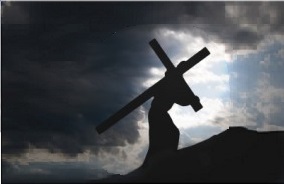Centrality
By Anthony Casperson
3-23-19
Spring break has begun for the students whose bus I drive. This coming week affords me (and probably a few others) some time off. If you’re anything like me, though, this “time off” is in theory only.
This gives us the time to accomplish the various tasks that have been piling up since Christmas. Some of these have amassed because we haven’t been able to give the proper amount of mental engagement to the project. Others have required multiple days without an otherwise-necessary piece of equipment. And I’m sure there have been many other excuses…I mean, “reasons” why the to-do list now reaches the floor.
The arrival of a break is often proceeded by multiple days of worrying over everything I have to get done during it. (And I assume I’m not alone here.) However, before I was even able to worry about those things over the past few days, I had other projects that needed to be completed as well, such as this blog right here.
In my worrying about a bunch of other things, my creativity fell to the wayside. I knew that I desired to write about something in relation to the cross. After all, I had begun an unofficial series for the seven weeks leading up to Resurrection Sunday that revolved around aspects of Jesus’ sacrifice. (If you hadn’t figured that one out already, we’re in week three.)
My deadline approached and I knew I needed to write something. “What facet of the cross do I talk about?” I asked myself. So many thoughts and ideas flowed through my head, but none really connected to a point that felt right to make. “Why is this so difficult? I mean, the cross is central to the lives of the followers of Jesus.”
“The cross is central? Then why has your mind been so focused on everything else? And why has it taken a deadline for you to even have the spare thought about the cross this week?”
I really hate it when that internal dialogue convicts so deeply.
The work of Jesus on the cross and of his resurrection really is supposed to be the central focus of his followers. And I don’t just mean in the 1 Cor. 15:17-19 manner, where our faith is useless without the truth of the resurrection, without which we would then be a most pitiful people.
While that is one way to take the centrality of the cross, there is another direction (which can be missed even if we assent to the importance of the resurrection to Christian faith). We shouldn’t allow the work of Jesus to be an afterthought in our daily lives.
The projects we need to do, the chores we have to accomplish, and even the activities we enjoy can worm their way into our focus so much that there’s not enough room for anything else. The work of Jesus on the cross, the relationship with God that it provides, lost in the shuffle of a million other thoughts.
If the cross is truly central in the lives of his followers, then it’s the cross that should cover all of the other thoughts going on in our heads, not the other way around. Every single one of those worries, projects, ideas, and desires focused through our relationship with God, which is only possible because of the cross.
That’s easy to say. Sure, we should interact with people viewing them as Jesus did by being willing to die for them. Yeah, we are to work in the strength that God provides us, giving forth our best effort. And absolutely, we are to spend time growing closer in our relationship with him, like we do for all other important relationships.
But, it’s a lot more difficult in action. Unexpected surprises pop up out of nowhere. Various frustrations leave us wanting to just lay about in peace. And our mind’s eye begins to crane around the cross, figuring out how to handle the situations coming our way.
While trying to figure out how to properly handle the centrality of the cross (because I’m not there yet), the verse that came to mind was Luke 9:23. “And [Jesus] said to all, ‘If anyone would come after me, let him deny himself and take up his cross daily and follow me’” (ESV).
The context of the verse is about general discipleship and sacrifice. But it made me think that if we daily pick up the cross, if we take the time every day to be reminded of our camaraderie with Jesus in his sacrifice, then we might just be able to keep the cross central in our focus.
The truth is I don’t know for certain what that exactly looks like. I’m along for this journey with all of you. So, let’s start small. For the next few weeks, up until Resurrection Sunday, let’s take time every day to purposefully think about how the cross interacts with the multitude of thoughts running through our heads. Focus on the cross and what it means in relation to everything else.
With our thoughts focused around the centrality of the cross, we might just discover that everything else becomes clearer.




